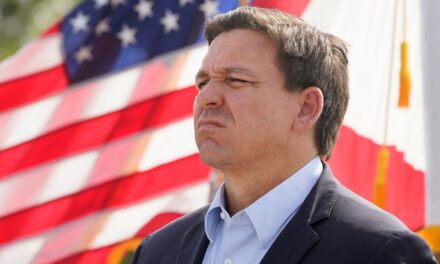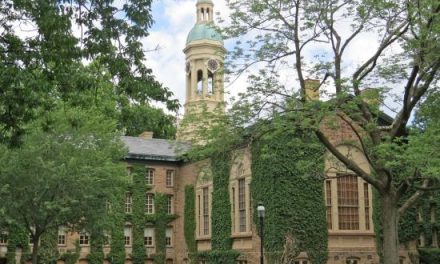Tonight, I’m going to the Washington, DC premiere of Micheal Moore’s new movie, Capitalism: A Love Story.
I know there are people who can’t stand Moore, but I’ve seen just about all of his movies.
He’s loud, perhaps even sometimes obnoxious, but in a time when so much that needs to be said is mystifyingly unsayable, at least Moore isn’t afraid to say it. And he doesn’t wait for America to catch up with him before he says it. SiCKO is just one example. Much of what Moore covered in the film, and many of the facts he posted to set the record straight, have been echoed over and over in the current health care debate.
He also isn’t afraid to stand up to the media when necessary. What inspired him to post the facts and sources he used in SiCKO was this little exchange.
And, this time around, Moore still isn’t afraid of “big bad” Wolf Blitzer.
I’ll be interested to see Moore’s take on things related to the economy. Admittedly, until the past year or so, I didn’t say much about economics, because I thought the subject so complicated that I’d probably miss something. I figured, there are plenty of smart people out there who know what it’s about and how it works. So, it was probably better if I just stayed away from the topic.
Then I heard Alan Greenspan, known as “The Oracle”, sit in front on a congressional panel and basically answer “Fuck if I know,” when asked what the hell was happening on Wall Street and how the hell he didn’t see this mess coming. I figured, if Greenspan didn’t know, it was okay for me to at least hazard a guess. (The result has been series like, Drop Dead Conservatism, The Society of the Owned and What’s Wrong With Wall Street?)
There were many flaws that Greenspan failed to see, and that other free market fundamentalists must avoid seeing if they want to continue to believe. A major one, as pointed out by Soros, Reich and other above is that the government has constantly intervened in the “free market” in order to save the market from itself and its own “innovations.” But there’s another that has is basis in nothing more than human nature.
All the time I’m sitting in the audience thinking that these models are far too simplistic and based on countless unrealistic assumptions. I tell people that these instruments are dangerous, that no one understands the risks. But no one cares.
As long as people are compensated hugely for taking risks with other people’s money, and do not suffer equally on the downside, then those risks will inevitably become outrageous. Whether markets are efficient or not, I don’t know for sure. But I do know that, if there’s a way for someone to make money at another’s expense, he will.
Simply put, it only works if everyone (in Greenspan’s terminology) behaves honorably. Put even more simply, in order for it to work, everyone has to behave themselves. Taken a step further, everyone will behave themselves, because it is in their “rational self interest” to do so. Thus Greenspan can say with a straight face that he believed self-interest would regulate Wall Street.
For years, a Congressional hearing with Alan Greenspan was a marquee event. Lawmakers doted on him as an economic sage. Markets jumped up or down depending on what he said. Politicians in both parties wanted the maestro on their side.
But on Thursday, almost three years after stepping down as chairman of the Federal Reserve, a humbled Mr. Greenspan admitted that he had put too much faith in the self-correcting power of free markets and had failed to anticipate the self-destructive power of wanton mortgage lending.
“Those of us who have looked to the self-interest of lending institutions to protect shareholders’ equity, myself included, are in a state of shocked disbelief,” he told the House Committee on Oversight and Government Reform.
Who can blame him for being “in a state of shocked disbelief”? After all, it would be irrational for an organism to destroy the very environment that sustains it. Wouldn’t it? And rational organisms like human beings wouldn’t do that. They’d stop themselves before things went too far. Right?
Of course, to believe that you’d have to ignore not only thousands of years of human history but also the simple truth of what the columnist I quoted earlier said. If people get big payoffs for taking big risks with other people’s money and suffer no consequences, some of them will do it. Or, if some people can beat you out of a buck and get away with it, they won’t think twice about doing it.
But even worse than that, Greenspan (and a host of other free market fundies) would have to ignore his own interventions on behalf of the wealthiest players. In that sense, he is a bit like the “Great and Powerful Oz” — the man behind the curtain, pulling levers and flipping switches — except that he has come to believe in the facade of fire and smoke.
Well, what do you expect when you turn you economy over to someone who subscribes to the philosophy of Ayn Rand? It was deliciously described in The New Republic by John Chait.
In these disparate comments we can see the outlines of a coherent view of society. It expresses its opposition to redistribution not in practical terms–that taking from the rich harms the economy–but in moral absolutes, that taking from the rich is wrong. It likewise glorifies selfishness as a virtue. It denies any basis, other than raw force, for using government to reduce economic inequality. It holds people completely responsible for their own success or failure, and thus concludes that when government helps the disadvantaged, it consequently punishes virtue and rewards sloth. And it indulges the hopeful prospect that the rich will revolt against their ill treatment by going on strike, simultaneously punishing the inferiors who have exploited them while teaching them the folly of their ways.
There is another way to describe this conservative idea. It is the ideology of Ayn Rand. Some, though not all, of the conservatives protesting against redistribution and conferring the highest moral prestige upon material success explicitly identify themselves as acolytes of Rand. (As Santelli later explained, “I know this may not sound very humanitarian, but at the end of the day I’m an Ayn Rand-er.”) Rand is everywhere in this right-wing mood. Her novels are enjoying a huge boost in sales. Popular conservative talk show hosts such as Rush Limbaugh and Glenn Beck have touted her vision as a prophetic analysis of the present crisis. “Many of us who know Rand’s work,” wrote Stephen Moore in the Wall Street Journal last January, “have noticed that with each passing week, and with each successive bailout plan and economic-stimulus scheme out of Washington, our current politicians are committing the very acts of economic lunacy that Atlas Shrugged parodied in 1957.”
…The likes of Gale Norton, George Gilder, Charles Murray, and many others have cited Rand as an influence. Rand acolytes such as Alan Greenspan and Martin Anderson have held important positions in Republican politics. “What she did–through long discussions and lots of arguments into the night–was to make me think why capitalism is not only efficient and practical, but also moral,” attested Greenspan. In 1987, The New York Times called Rand the “novelist laureate” of the Reagan administration. Reagan’s nominee for commerce secretary, C. William Verity Jr., kept a passage from Atlas Shrugged on his desk, including the line “How well you do your work . . . [is] the only measure of human value.”
It makes sense. Like I said before, depending on your perspective it’s perfectly right that millions of people have health insurance, and absolutely wrong for the government to guarantee coverage to anyone. Our health care system, like our economy, works for those who have wealth because it’s supposed to. If you’re complaining because it’s not working for you, no matter how hard you work at it, that’s because it’s not supposed to.
Of course, he was wrong. Wrong about derivatives, wrong that Wall Streeters would simply “behave honorably,” and wrong about much more.
It was Greenspan who set the Fed funds rate at an all-time low of one percent, inflating the housing bubble whose existence he denied, insisting that the unprecedented run-up in housing prices was just local “froth.”
It was Greenspan who successfully fought off all efforts to regulate derivatives — the generic name for the financial instruments that have poisoned the world’s economies — by the Congress and the Commodity Futures Trading Commission, proclaiming instead that the market would regulate itself.
When then-Rep. Bernie Sanders (I-VT) asked Greenspan at a Congressional hearing, “Aren’t you concerned with such a growing concentration of wealth that if one of these huge institutions fails that it will have a horrendous impact on the national and global economy?”
Greenspan answered, “No, I’m not. I believe that the general growth in large institutions has occurred in the context of an underlying structure of markets in which many of the larger risks are dramatically — I should say, fully — hedged.” In other words, the bigness of our big banks had conquered risk.
Well, he wasn’t entirely wrong, I guess. Some of them were “too big to fail” in that the government was unwilling to let them fail. A year after one of them — Lehman — failed, what remains of the financial sector is doing quite well. The rest of us? Not so much.
Now, with the financial sector stabilized and economists predicting that the Great Recession is nearing an end, the sighs of relief coming out of Washington and Lower Manhattan are understandable. But this is no time to lose sight of the wreckage all around us. This recession, a full-blown economic horror, has left a gaping hole in the heart of working America that is unlikely to heal for years, if not decades.
Fifteen million Americans are locked in the nightmare of unemployment, nearly 10 percent of the work force. A third have been jobless for more than six months. Thirteen percent of Latinos and 15 percent of blacks are out of work. (Those are some of the official statistics. The reality is much worse.)
Consider this: Some 9.4 million new jobs would have to be created to get us back to the level of employment at the time that the recession began in December 2007. But last month, we lost 216,000 jobs. If the recession technically ends soon and we get to a point where some modest number of jobs are created — say, 100,000 or 150,000 a month — the politicians and the business commentators will celebrate like it’s New Year’s.
But think about how puny that level of job creation really is in an environment that needs nearly 10 million jobs just to get us back to the lean years of the George W. Bush administration.
We’re hurtin’ and there ain’t much healin’ on the horizon.
That’s because something else is becoming clearer to more and more people as the downturn continues. If we live in a world where these institutions are “too big to fail” and trillions in tax dollars are committed to making sure they don’t, then the rest of us who are losing jobs, pensions, homes, health insurance — and perhaps even hope in some cases — perhaps the rest of us are in the opposite category: too small to matter. And that cuts across some powerful divisions.
After a preview screening last week (at which I did a Q&A session with Michael), he came over to my home for a late night bite. Over lasagna, he told me about an incident that occurred while he was filming that exemplifies how the economic crisis cannot be looked at through a left vs right prism.
It happened while he and his crew were shooting the climax of the movie, where Michael decides to mark Wall Street as a crime scene, putting up yellow police tape around some of the financial district’s towers of power.
While unfurling the tape in front of a “too big to fail” bank, he became aware of a group of New York’s finest approaching him. Moore has a long history of dealing with policemen and security guards trying to shut him down, but in this case he knew he was, however temporarily, defacing private property. And his shooting schedule didn’t leave room for a detour to the local jail. So, as the lead officer came closer, Moore tried to deflect him, saying: “Just doing a little comedy here, officer. I’ll be gone in a minute, and will clean up before I go.”
The officer looked at him for a moment, then leaned in: “Take all the time you need.” He nodded to the bank and said, “These guys wiped out a lot of our Police Pension Funds.” The officer turned and slowly headed back to his squad car. Moore wanted to put the moment in his film, but realized it could cost the cop his job, and decided to leave it out. “When they’ve lost the police,” he told me, “you know they’re in trouble.”
There’s another Q & A after this premiere. I’m interested in hearing what else Moore has to say.






